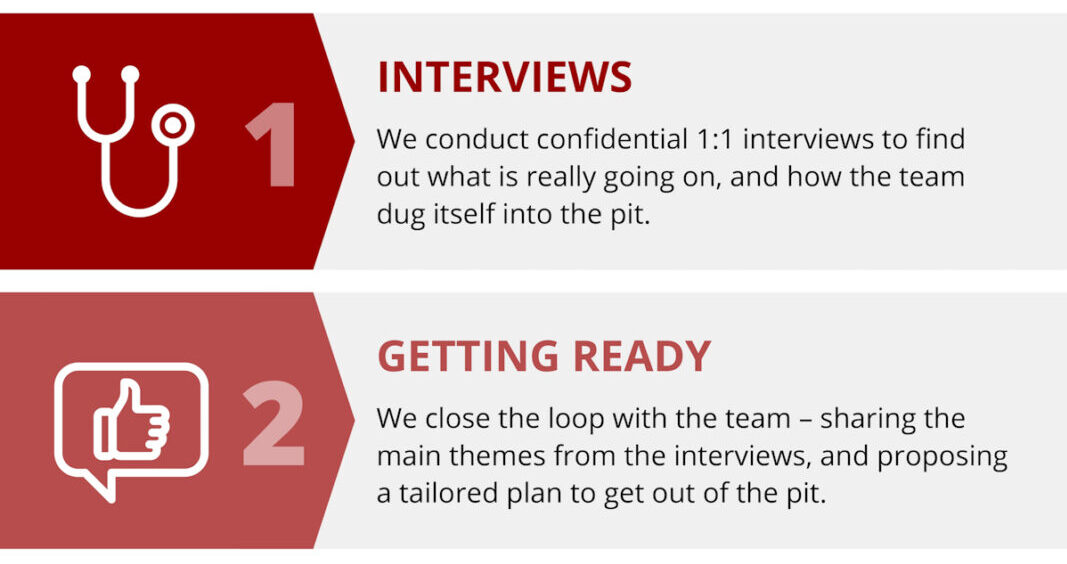How do you transform the dynamics of a team (leadership or otherwise) from dysfunctional to…
Bad for business: managers playing dark politics

Premier US-based association HRPS (executive arm of SHRM) invited Edmond Mellina to contribute monthly to its brand new blog on HR, people and strategy. The latest edition of the People & Strategy journal provided the starting point for this blog post…
This post also appeared on the blog of the Strategy Capability Network.
——————
In the winter 2015 edition of the People & Strategy journal (page 9), Robert Hogan talks about the prevalence of bad managers. He refers to “12 published estimates of the frequency of management failure [resulting in managers being actually fired], which range from 30 to 67 percent, with an average of about 50 percent”. Hogan believes the real number of bad managers is higher: “About two-thirds of existing managers are ineffective, but fewer than half will be caught because they are good at internal politics.”
Hogan’s assessment might feel harsh but the above percentages sound about right to me. More importantly, Hogan points to a critical organizational issue: too many managers excelling at internal politics. They manage up while wreaking havoc on teams and colleagues; and their superiors don’t see beyond the smoke and mirrors.
The big irony is that politics interferes severely with the quest for integrity and performance – two core elements of organizational credo in commercial, government and non-profit sectors alike. What can HR do about it?
The two sides of internal politics
Like The Force in the Star Wars universe created by George Lucas, politics has both a “dark” side and a “light” side. When I said above that too many managers excel at politics, I was referring to managers playing politics for personal gains. That is the dark side.
It is fundamentally different from leaders leveraging influences to reach the organization’s objectives. That is the light side. The intent of light politics is first and foremost the good of the organization, not personal benefits. Engaging in light politics is not only laudable, but also critical to organizational success. That’s because in a constantly evolving economy, the ability to adapt is the key to surviving and thriving. And marshalling support for the necessary changes requires a significant amount of light politics.
Dark politics vs. integrity
However, I am of the opinion that playing dark politics belongs in the realm of unethical behaviour. To succeed in the game of internal politics, one must be willing to plant sharp knives in the back of one’s opponents. Where is the integrity in that?
Sadly, promotions and plum assignments often go to the players who are the most gifted at the game of dark politics. As in the popular reality television show Survivor, those who don’t master the art of deceit, or whose personal values prohibit them from engaging in manipulative behaviour, often end up being voted off the island. In Survivor, however, some of the outcasts make it to the jury and vote during the Tribal Councils. This has a significant impact on the game because it discourages the players from acting too cunningly. Otherwise the jury will make sure they don’t receive the big dollar prize.
However, in the corporate world, the outcasts often disappear in oblivion, which means the Machiavellian players are left unchecked. Hence, internal politics can be worse than Survivor.
Since the Enron-era scandals, organizations have walked the integrity talk by improving their governance structures and financial reporting. But they haven’t done nearly enough to rein in dark politics. In other words, the reality of the workplace doesn’t match the creed of integrity.
Dark politics vs. performance
What about organizational performance? Dark politics consumes an inordinate amount of brain power and emotional energy. The intrigues divert everyone’s attention from advancing the business. Therefore it also conflicts with the creed of performance.
Consider the case of Lyle, a manager who rejoined his previous employer after a few years spent at a competitor. During that period, the company had gone through a series of acquisitions. It had become highly political. Initially, Lyle focused squarely on tackling the challenge for which he had been rehired. But, to his dismay, he soon realized he had entered a nasty game of politics.
His boss and peers were masters at the art of deceit. Lyle’s attention quickly switched from doing his job to playing survival politics, although he wasn’t really effective at it. Not surprisingly, his performance declined. This was a development his adversaries made sure to point out to the top executives. Within six months Lyle was let go. His primary opponent summed it up scornfully by saying: “Lyle tried to play politics, but he didn’t know how to play. So, he is gone.”
Not only did the protagonists waste huge amounts of time and energy, so did the employees watching from the sidelines. In the end, Lyle’s misfortune became part of the collective history, therefore reinforcing an already highly political culture.
Allowing dark politics to exist has long-term performance implications, particularly on the talent management front. It has a debilitating effect on a precious group of workers: the competent employees driven by doing what is right for the organization. They become disengaged, they leave or they are pushed out like Lyle.
A political culture also generates leaders who are, well, political. They have seen their boss successfully climb the ladder through cunning. The message is loud and clear: success as a leader requires mastering dark politics.
The more political the culture becomes, the more it reinforces that message and the more political people get. Of course, a political culture also tends to attract “corporate politicians.” So it’s clearly a vicious circle. And when managers play politics, they don’t have enough time for leadership.
What can HR do?
The bottom line is that dark politics spells trouble for the organization’s leadership pipeline, its ability to retain ethical talent and its overall performance. I believe HR can play a bigger role in helping senior leaders see through the smoke and mirrors of lower-level managers operating from the dark side of politics.
Below are some ideas to fuel the thinking of HR leaders. Jump into the conversation and tell us what you think.
- Start by doing what leaders do: lead by example. Don’t play dark politics and don’t allow corporate politicians to win the day in HR.
- Raise awareness about the light and dark sides of politics. Talk about the importance of the former and the implications of the latter, both immediate and future.
- Find out what is really going on out there. Talk to people, probe and observe. Most importantly, when a political employee is being considered for a promotion or plum assignment, have the courage to raise your concerns. If you are not prepared to do this, then at least don’t say your organization promotes integrity and performance. It would just add to the big irony.
I will leave the final words to the folks at Facebook. At a recent talent management conference, speaker Michael Couch shared the following comment from a HR leader of the social networking giant: “Hire hard, manage easy, fire fast. There is no room for brilliant assholes at Facebook”. I would include managers who excel at dark politics in that group.
Copyright © 2015 by ORCHANGO. All rights reserved. | Photo credit: ©Flickr.com/Kenny Louie




This Post Has 0 Comments